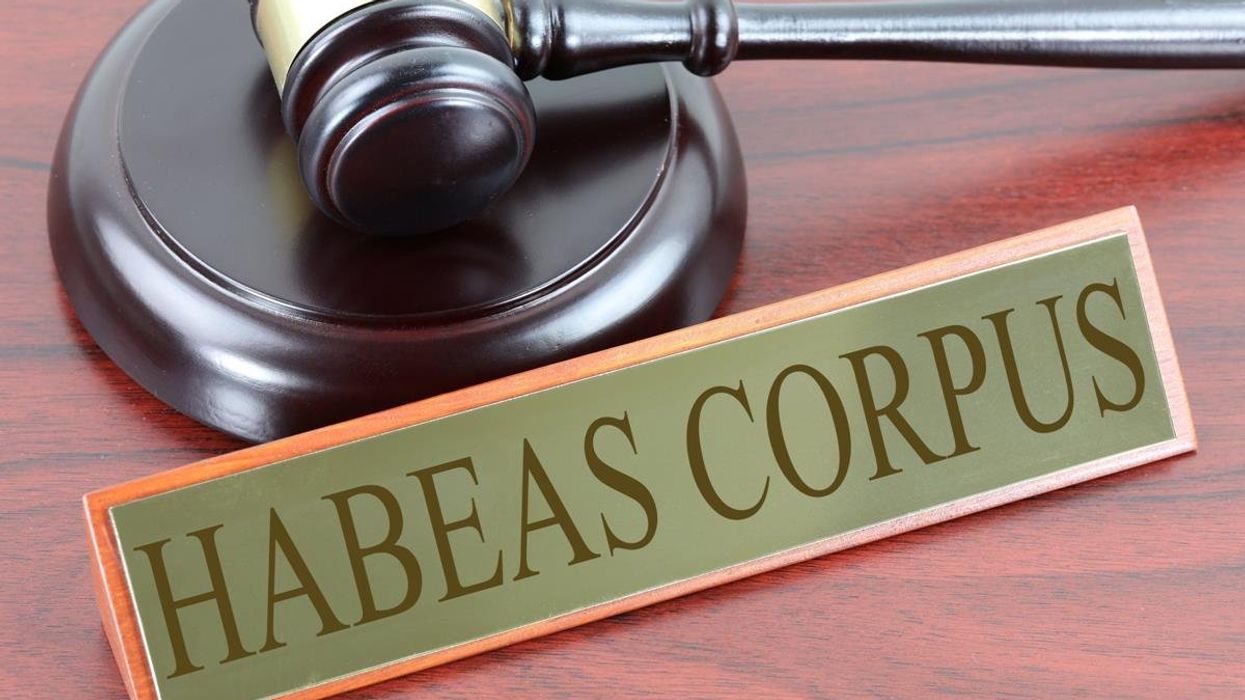The Fulcrum strives to approach news stories with an open mind and skepticism, striving to present our readers with a broad spectrum of viewpoints through diligent research and critical thinking. As best we can, remove personal bias from our reporting and seek a variety of perspectives in both our news gathering and selection of opinion pieces. However, before our readers can analyze varying viewpoints, they must have the facts.
What is Habeas corpus?
Habeas corpus is a fundamental legal principle that protects individuals from unlawful detention. The term, derived from Latin, means "you shall have the body" and refers to a writ that requires authorities to bring a detained person before a court to justify their imprisonment. It ensures that no one is held without legal cause and is a cornerstone of due process in many legal systems.
In the U.S., habeas corpus is enshrined in the Constitution and can only be suspended in cases of rebellion or invasion. Historically, it has been used to challenge unlawful imprisonment, including in cases involving criminal defendants, immigration detainees, and military prisoners.
What has the Trump Administration recently done related to Habeas Corpus?
The Trump administration is actively considering suspending habeas corpus—the legal right that allows individuals to challenge their detention in court. White House Deputy Chief of Staff Stephen Miller stated that the administration is exploring this option, arguing that the Constitution permits suspension in cases of rebellion or invasion.
This move is primarily tied to immigration enforcement, as the administration seeks to expedite deportations by limiting judicial review. Some federal judges have already ruled against certain deportations based on habeas corpus claims, ordering the release of detained individuals. However, other judges have sided with the administration.
Legal experts have questioned the validity of Miller’s interpretation, emphasizing that only Congress can suspend habeas corpus. Historically, habeas corpus has only been suspended in extreme circumstances, such as the Civil War and World War II.
What arguments might be legally challenging the administration's use of Habeas Corpus?
The legal challenges ahead will likely focus on whether immigration qualifies as an "invasion" under constitutional law and whether the executive branch can bypass Congress in suspending habeas corpus. Some judges have ordered the release of detainees based on habeas corpus petitions, while others have upheld the administration's actions.
What are some specific court rulings or historical precedents?
- Hamdi v. Rumsfeld (2004): This Supreme Court case reaffirmed that the executive branch cannot detain U.S. citizens indefinitely without due process unless Congress suspends habeas corpus. The ruling emphasized that detainees must have the right to challenge their imprisonment in court.
- Banister v. Davis (2020): The Supreme Court clarified that a motion to alter or amend a habeas court’s judgment is not considered a second or successive habeas petition under federal law. This ruling helped define procedural limits on habeas corpus appeals.
When have there been historical suspensions of Habeas corpus?
- The Civil War (1863): President Abraham Lincoln suspended habeas corpus to detain suspected Confederate sympathizers.
- World War II (1942): The U.S. government suspended habeas corpus in Hawaii following the attack on Pearl Harbor.
- Trump v. J.G.G. (2025): This recent Supreme Court case involved the detention and removal of Venezuelan nationals under the Alien Enemies Act. The Court ruled that habeas corpus must be used to challenge such detentions, reinforcing its role as a safeguard against arbitrary imprisonment.
Have any members of Congress commented on the proposed suspension of Habeas corpus by the Trump administration?
Several legal experts and commentators have weighed in on the Trump administration's consideration of suspending habeas corpus. The general consensus is that only Congress has the authority to suspend habeas corpus, not the president. The Constitution places this power in Article I, which governs legislative authority, meaning the executive branch cannot unilaterally make this decision.
Many legal scholars and judges have challenged this interpretation, and some courts have ruled against the administration's efforts to bypass habeas corpus protections.
David Nevins is co-publisher of the Fulcrum and co-founder and board chairman of the Bridge Alliance Education Fund.




















Trump & Hegseth gave Mark Kelly a huge 2028 gift